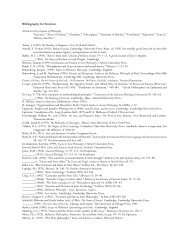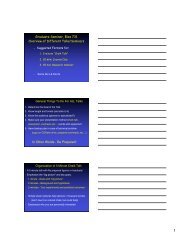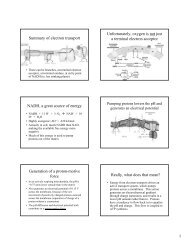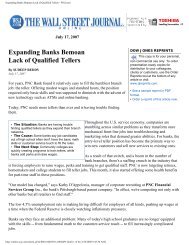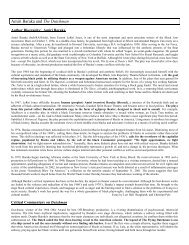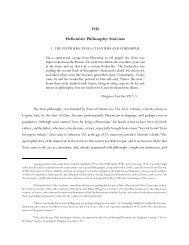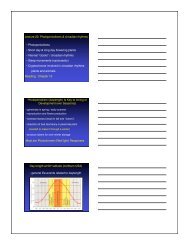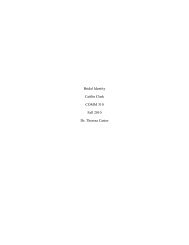V. VERB QUALITIES - UW-Parkside: Help for Personal Homepages
V. VERB QUALITIES - UW-Parkside: Help for Personal Homepages
V. VERB QUALITIES - UW-Parkside: Help for Personal Homepages
You also want an ePaper? Increase the reach of your titles
YUMPU automatically turns print PDFs into web optimized ePapers that Google loves.
even a possibility of the implied request being granted. This humble use of can is an old and<br />
well-attested one, but it annoys those who would like the language to make more rigorous<br />
distinctions in word use. Those who feel this way would prescribe the use of may or might <strong>for</strong><br />
all cases where permission is sought. They can often be used interchangeably, without<br />
regard to tense considerations, though in general the past <strong>for</strong>ms of modals (could, might)<br />
appear somewhat more deferential:<br />
(5) May I have this dance?<br />
(6) Might I have this dance?<br />
When it comes to questions, you might want to use may/might only in highly <strong>for</strong>mal<br />
situations--or when asking an English teacher to dance. Notice, though, that they can also be<br />
used where the issue is simply possibility–thus infringing on the turf of can/could:<br />
(7) I may have offended her.<br />
(8) I might drop by your place later.<br />
114<br />
By most accounts, a Standard English sentence can have only one modal at a time. Various<br />
non-standard dialects, however, use might could and some other double modals, and use of<br />
these double modals may be coming more widespread. It is probably still safest to avoid<br />
them in <strong>for</strong>mal writing. In in<strong>for</strong>mal speech, of course, one hears the triple <strong>for</strong>m mightacoulda-woulda,<br />
with the “-a” endings representing the abbreviated have <strong>for</strong>m ‘ve, which is<br />
also responsible <strong>for</strong> the very non-standard <strong>for</strong>ms might of, could of, or would of.<br />
Some overlap in uses also occurs between the pairs will/would and shall/should.<br />
At one time school texts insisted that shall should be used <strong>for</strong> the future with the first person<br />
singular and plural and will in all other cases:<br />
(1) I shall see you soon.<br />
(2) We shall have a drink or two be<strong>for</strong>e we go.<br />
(3) He will lose his teeth that way.<br />
(4) They will want to <strong>for</strong>get this game.<br />
This usage survives, especially in British English, but Standard American English uses will in<br />
all such sentences, reserving shall <strong>for</strong> mandative uses, where it is much more <strong>for</strong>ceful than<br />
either will or should--closer, in fact, to must:<br />
(5) Meetings shall be held on alternate Fridays.<br />
Would is used in hypothetical futures, including polite requests, and is sometimes combined<br />
in that use with like:<br />
(6) I wouldn't do that if I were you.<br />
(7) Would you get me a beer while you're up?<br />
(8) Would you like to sit down?.<br />
Should is generally used interchangeably with ought to as a less <strong>for</strong>ceful <strong>for</strong>m of must and<br />
the mandative shall, one that does not assume compliance:<br />
(9) The committee shall meet every week.<br />
(10) The committee must meet every week.<br />
(11) The committee ought to meet every week.<br />
(12) The committee should meet every week.<br />
One can also find should as a rather <strong>for</strong>mal future in conditional clauses, as in sentence (13):<br />
(13) If George should come, tell him I’d like to speak with him.



